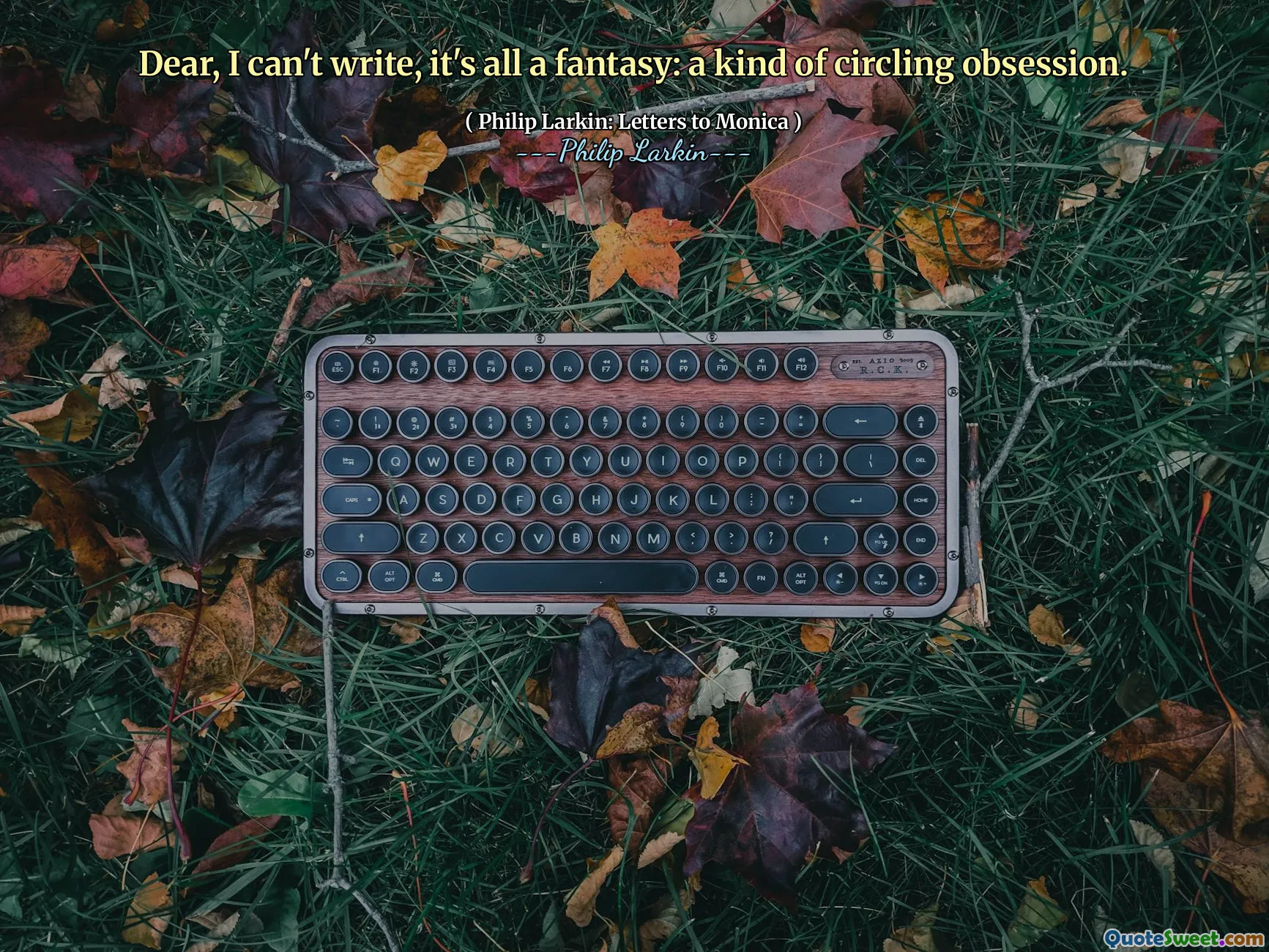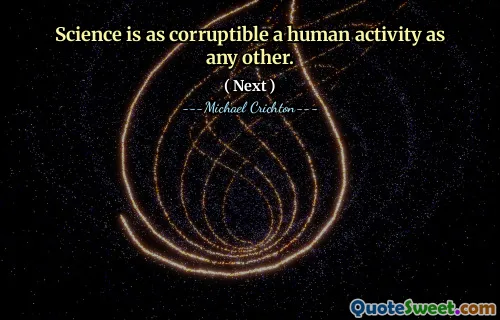
Dear, I can't write, it's all a fantasy: a kind of circling obsession.
This quote captures a profound struggle that many creative individuals experience: the paradox of yearning to express oneself authentically but feeling imprisoned within the confines of one's internal world. The statement, 'I can't write, it's all a fantasy,' suggests a deep frustration with the act of writing itself. It hints at a dissonance between the desire to communicate truthfully and the perception that the outcome is merely illusory or detached from reality. The added phrase 'a kind of circling obsession' enriches the context, indicating that this struggle is not a fleeting moment but a persistent, perhaps compulsive, experience.
From a psychological perspective, this revolves around the conflict between creativity and self-doubt. Writing, as an inherently introspective activity, often requires grappling with inner fantasies, emotions, and sometimes anxieties. The 'circling obsession' is reflective of how thoughts and ideas can loop ceaselessly without reaching a satisfying resolution. It's a vivid portrayal of how the mind can become entrapped in an endless cycle of creation and critique, never settling on a final truth or expression.
Moreover, the relational prefix 'Dear' gives the sentence a conversational intimacy, as if admitting a confession to a close companion. It humanizes the struggle, reminding us that even the most talented writers, here symbolized by the author Philip Larkin, can feel helpless or disillusioned with their craft. There is a vulnerability in exposing the creative impasse, as well as the compelling nature of obsession — which may be both a barrier and a driving force to return to the work repeatedly.
The quote also resonates on a universal level beyond writing: it addresses the human tendency to ruminate on anxieties or emotional turmoil — circling thoughts that are both captivating and confounding. Larkin’s words encapsulate the bittersweet beauty of creativity, where the act of creation is inseparable from the internal maze of the mind. Such reflections invite readers and writers alike to empathize with the ongoing battle between inspiration and insecurity, and to recognize the both cursed and blessed nature of obsessive engagement with one’s inner fantasies.


